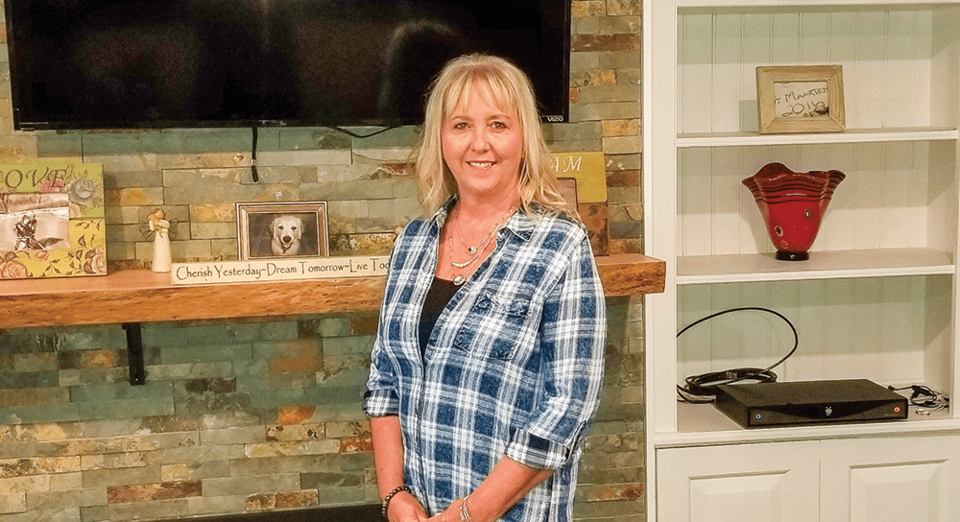Colleen Otto, practicing life coach, retired special educator, and founder of “Forever Better Life” life coaching services, has some new insight on this new industry. Otto says a combination of traditional talk therapy and life coaching might be the cure for the hangups of modern life, whether you’re six, 16, or 60 years old.
A graduate of the Rhodes Wellness College Life Coaching program, based in Vancouver, BC, and certified under the International Coach Federation, Otto has worked out of her home office in Pelham for about a year. After completing her distance education and an intensive practicum, Otto’s practice has grown both locally and nationally. She currently services approximately ten clients in person and ten more clients in a distance capacity.
Before her current career, however, for 15 years Otto worked for the Niagara Catholic District School Board as a Special Educator. When a severe injury disrupted her path in September 2016, Otto decided to use her recovery time to pursue her “dream job.”
“I always knew what I wanted to do, I just never knew what it was called,” Otto says when asked what brought her to life coaching. “It was the best decision I ever made.”
For readers unfamiliar with the term “life coach,” note this title is not to be confused with “therapist.” Although many of the same tools and strategies are used in both, life coaching is oriented around achieving and identifying, rather than healing and diagnosis. A combination of both, Otto says, is the powerhouse our society sorely needs.
Otto’s practice is particularly client-centric and based on the idea that every client’s treatment must be “distinct, flexible, and respective” of their unique background, goals, and challenges. When it comes to her new client procedure, the “how” is entirely dependent on the client and “allows the client to tell me how they like to learn and how they would like the practice to go forward.”
Engaging with a new client begins rather like traditional talk therapy, with a phone call and an intake form to fill out prior to the first session. After this, Otto’s practice focuses on involving the client in designing a unique action and achievement plan over assigning homework.
Traditional talk therapy functions as a relatively passive and contained treatment style, says Otto, with each session being finite and structured. After you step out of your therapist’s office, your mental health is entirely your responsibility once more until the next session. Life coaching on the other hand, is designed to be more active, ongoing, and involved according to the client’s needs, she says.
Accountability is a major component. Your life coach not only acts as a sounding board and trained impartial party, but as a strategist and accountability partner as well. This means anything from weekly or monthly check-ins over the phone to the occasional email reminder or conference call. Otto asserts that many of her clients find they only require one session to figure out what is blocking or hindering them from success, while “the longest client I had was eight months. It is not a permanent form of treatment.”
Otto says that her time working for the NCDSB revealed a lack of resources when it comes to child and youth mental health. Beyond a general stigma surrounding child therapy, Otto found that children rarely respond to therapy alone in a lasting way, and have no vested interest in pursuing it. Children act-out for a reason, but lack the emotional maturity or vocabulary to understand why. This is where life coaching can come in handy.
“Life coaching and therapy work together. Therapy works on your past, where life coaching works on your future,” Otto says.
With limited past experiences to draw on, children are some of the best candidates for life coaching, as their primary focus is on the future. Otto says that the majority of her current clients are mothers and youth. She plans to expand her services this month in order to specifically target this younger demographic.
“I’m going to be starting to offer my services to kids. Whether it’s kids and parents together, or just the kids. Being in the school system for so long, anxiety, poor body image, a lack of self esteem, or confidence is a huge problem. I really want to offer life coaching to help kids learn and set positive goals. And using these strategies is I think what they need.”
Otto says that when dealing with the challenges of her young adult clients, the problems can often be traced back to such issues remaining unaddressed during earlier stages of childhood.
Otto’s concern stems from a lack of resources, counsellors, educational assistants, and Child and Youth Workers in both the public and private school systems. A trend that creates extra strain on teachers and leaves children experiencing common setbacks without the resources or the basic knowledge that asking for help is normal and acceptable.
“I’m not here to tell you what you need. I can help set you on a path to get you what you need and where you want to go. It’s all about getting you to that next step. Whether that next step is in three months, six months, or a year from now. Everybody’s success is different. If you are setting goals for yourself and reaching them, there’s nothing but success.”
Colleen Otto is currently accepting new clients. To schedule an appointment or for more information, visit https://lifecoachforeverbetter.com.



